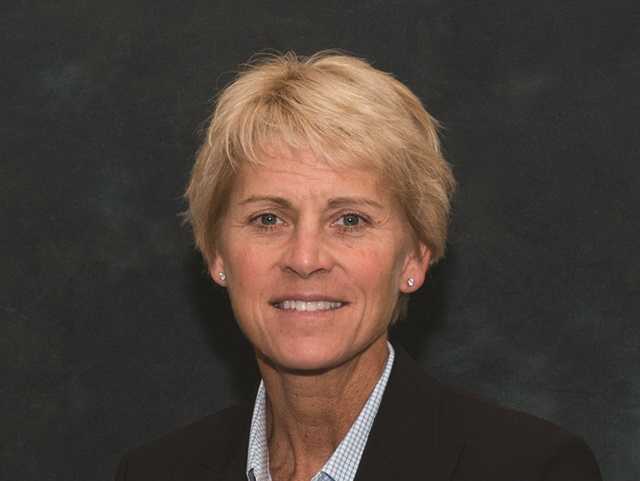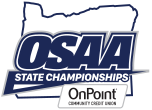
Benjamin Franklin once noted that “out of adversity comes opportunity.” Given the events of the past four months, our country should be in line for many opportunities in the coming months and years.
And in the world of education-based high school sports and performing arts, perhaps there is an opportunity to reassess what has been the best model in the world and determine if there are ways to reach even more individuals in different ways and alongside other groups and programs.
The U. S. model of sports and other activity programs within the school setting has provided a successful blend of education and activities for millions of high school students for almost 100 years.
Multiple studies in The Case for High School Activities produced by the National Federation of State High School Associations (NFHS) have revealed that playing sports keeps kids in school, thereby improving their chances of earning better grades and eventually graduating. These vital programs within the school setting inspire young people to succeed, and they learn many life lessons that are not taught in the classroom.
Before the 2018-19 school year, participation in high school sports had increased for 30 consecutive years. Currently, there are more than 12 million participants in high school sports and performing arts programs.
These are hardly numbers that decry a need for repair. However, there are many others – from middle school to high school – who have not received those opportunities for various reasons. And even before the pandemic hit earlier this year, the NFHS’ annual sports participation survey indicated that some of the longtime core sports had become stagnant or had registered slight declines in participation.
In the past few weeks, working from the NFHS’ Guidance for Opening Up High School Athletics and Activities document, state high school athletics/activities associations – and individual school districts – have started to establish plans for restarting athletics and activities. In order to return to play as safely as possible, one state administrator noted “we have to think outside the box” and another noted that “every option is on the table.” To that end, some states are looking at starting competition this fall only in sports that allow for adequate social distancing as opposed to the sports traditionally conducted at this time of the year.
In addition to this open-minded thinking to short-term solutions for safely returning students to the classroom and to the playing fields and courts, there is no better time – from a longer-term perspective – to consider ways to involve others not currently involved in school sports or activities. If our education-based model of sports within the school setting is going to be successful for the next 100 years, our motto needs to be “Something for All.”
In addition to providing safe re-entry into sports and other activities, which may involve participation in only low-risk sports at first, schools must be inclusive and provide participation opportunities for everyone. Beyond the varsity sports teams, opportunities such as freshman or sophomore teams, Unified programs, Paralympic sports and intramurals might be considered.
In whatever way possible, a pathway to success for all students – not just those with the highest skill levels – should be developed. The gap between the end of the school day and return to home must be covered by engaging sports and activities programs. In whatever form and by whatever name, these afterschool programs must be cocurricular.
And if we are to meet the needs of everyone – “Something for All” – school-based programs must forge collaborative relationships within their communities. As an example, working with out-of-school club programs rather than against them may serve to promote participation with all groups.
By connecting with coaches of youth sports teams in their communities, high school coaches can spur excitement on the part of youth players and their parents and improve chances of kids continuing to play sports in high school. Without a doubt, high school coaches can be the focal point to success of programs in communities across the nation.
In that spirit of collaboration, the NFHS is supporting the Aspen Institute’s Project Play as it launches its Reimagining School Sports in America initiative. The project will recognize eight schools – large and small; urban, suburban and rural; public, private and charter – that are innovative and have engaged the broadest percentage of students in sports and physical activity. More information on the program is available here: https://www.aspenprojectplay.org/reimagining-school-sports
The NFHS is excited to work alongside the Aspen Institute in this endeavor. We encourage high schools to examine their sports and activities offerings and take this opportunity to reach as many students as possible in new ways. A reimagined school sports model that keeps high school education-based sports activities at its core is a proven roadmap for success.
In the short-term, which may evolve into much of the 2020-21 school year, as well as the years that follow, all groups must work together to ensure that school sports and other activities involve “Something for All.”
Dr. Karissa L. Niehoff is in her second year as executive director of the National Federation of State High School Associations (NFHS) in Indianapolis, Indiana. She is the first female to head the national leadership organization for high school athletics and performing arts activities and the sixth full-time executive director of the NFHS, which celebrated its 100th year of service during the 2018-19 school year. She previously was executive director of the Connecticut Association of Schools-Connecticut Interscholastic Athletic Conference for seven years.
Online link to article: https://www.nfhs.org/articles/something-for-all-reaching-more-students-for-high-school-sports-performing-arts/
About the National Federation of State High School Associations (NFHS)
The NFHS, based in Indianapolis, Indiana, is the national leadership organization for high school sports and performing arts activities. Since 1920, the NFHS has led the development of education-based interscholastic sports and performing arts activities that help students succeed in their lives. The NFHS sets direction for the future by building awareness and support, improving the participation experience, establishing consistent standards and rules for competition, and helping those who oversee high school sports and activities. The NFHS writes playing rules for 17 sports for boys and girls at the high school level. Through its 50 member state associations and the District of Columbia, the NFHS reaches more than 19,500 high schools and 12 million participants in high school activity programs, including more than 7.9 million in high school sports. As the recognized national authority on interscholastic activity programs, the NFHS conducts national meetings; sanctions interstate events; offers online publications and services for high school coaches and officials; sponsors professional organizations for high school coaches, officials, speech and debate coaches, and music adjudicators; serves as the national source for interscholastic coach training; and serves as a national information resource of interscholastic athletics and activities. For more information, visit the NFHS website at www.nfhs.org.
MEDIA CONTACT: Bruce Howard, 317-972-6900
Director of Publications and Communications
National Federation of State High School Associations









